'From March 2020 to November 2021, the combined wealth of the billionaires of this country has doubled.'
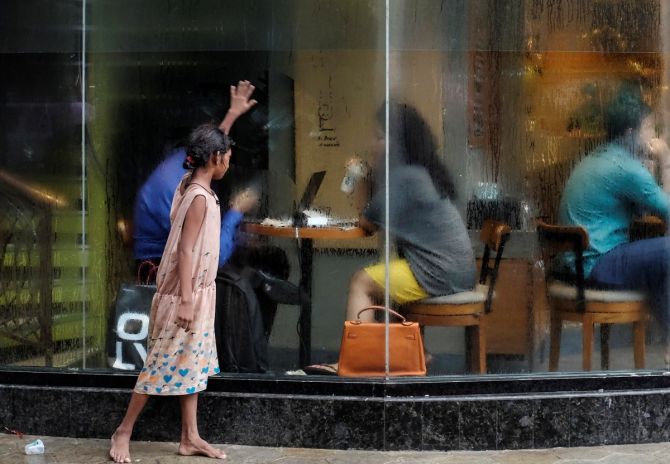
Like it did in 2020, Oxfam India has issued a report this year, and it was presented ahead of the World Economic Forum's Davos Agenda.
If the title of the 2020 report was Inequality Virus, this year's report is titled Inequality Kills.
Some revelations in the Oxfam India report are...
- 4% tax on the wealth on India's 98 billionaires can take care of the Mid-Day-Meal scheme for 17 years or the Samagra Sikshya Abhiyan for 6 years.
- 1% wealth tax on the 98 billionaires would finance Ayushman Bharat for more than seven years.
- 1% of tax on wealth of the 98 billionaires can take care of the total expenditure for school education and literacy.
- 4% tax on wealth on the 98 billionaires would be enough to fund Mission POSHAN 2.0 (includes Anganwadi Services, POSHAN Abhiyan, Scheme for Adolescent Girls, and National Creche Scheme) for 10 years.
- A 2% tax on individuals with an income of over Rs 10 crores (Rs 100 billion) could increase the ministry's budget by an astounding 121%.
- If the wealth of the first hundred billionaires are accumulated, they could fund the National Rural Livelihood Mission scheme, responsible for creating Self Help Groups for women, for the next 365 years.
"We are trying to highlight again and again that you cannot continue with a system where all the profits get accumulated with the top whereas the majority of the population see a decline in their income. It is hugely problematic," Oxfam India CEO Amitabh Behar tells Shobha Warrier/Rediff.com.
When we spoke about the 2020 Oxfam report, you had said that 'Inequality has been growing in the world. The virus has only amplified it'. Your 2021 report says, 'Inequality kills'....
Yes, the report has identified that inequality has grown way beyond what is acceptable. We are saying it exploded last year.
If you look at the data, it is fairly clear that from March 2020 to November 2021, the combined wealth of the billionaires of this country has doubled.
Globally also, the wealth of the top 10 rich has doubled. And it is not 1% or 2% or 10% increase, but what we see is, doubling of their wealth!
The growth of the billionaires in India is not just in terms of wealth, but the number also increased from 102 to 142!
That is one side of the story.
On the other side of the spectrum is 84% of Indian households have a decline in their income and 46 million people slide into extreme poverty in the same period which is half of the global poor.
That is the level of contrasting reality we are living in now.
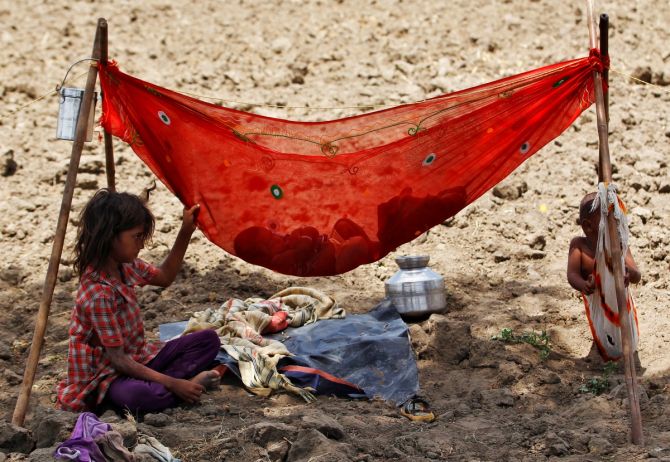
The report says that inequality has contributed to the death of at least 21,000 people globally every day, and 1 person died every four seconds... This is shocking...
This is a global figure. But we have not looked at this in India's context.
The level of inequality has grown so much that it lead to the death of so many people.
The inequality is such that black people are likely to die 1.5 times more than the white people in Brazil.
In the US, 3.4 million black people would have been alive if they had the same life expectancy as white people.
During the second wave of the pandemic in England, people of Bangladeshi origin were five times more likely to die of COVID-19 than the White British population.
Inequality goes to the heart of the climate crisis also, as the richest 1% emits more than twice as much CO2 as the bottom 50% of the world.
And we know it has contributed to wildfires, floods, tornadoes, crop failures, and hunger.
Could you find out whether the inequality we see now is mainly due to the pandemic, or the culmination of the economic policies the world has been following for some time now?
What we have found out is, the pandemic has accentuated the situation.
The policies that are chosen are leading to a system where the poor are becoming poorer, and more vulnerable.
Take the case of climate change or the health infrastructure. Not just in India but globally also, we would not have suffered the level of devastation if not for the policies we have been following.
So, it is not just about the virus; it is about how we have created our own system.
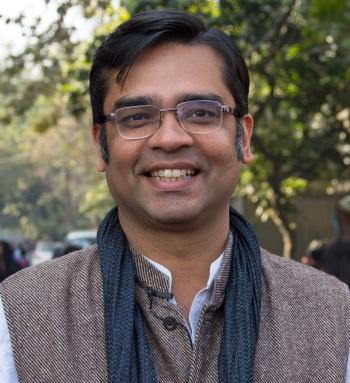
Amitabh Behar, CEO, Oxfam India
Your report notes privatisation of healthcare and education as one of the major enablers of inequality, and that is what we are seeing in all the states in India, including Kerala.
Absolutely. There are enough studies done globally, and all of them say that one of the best drivers of an equal society is public investment in healthcare and primary education.
Yet, what we are seeing in India is the constant starvation of the public health system and also the public education system.
Every government promises that they would give 2%-3% of GDP to healthcare, but we have never crossed 1.5%.
That massive shortfall has resulted in collapsing health infrastructure.
Among the BRICS countries, Brazil invests 9.2% of GDP on public healthcare, South Africa 8.1%, Russia invests 5.3% of GDP. It is 5% in China while it is just 1.25%-1.5% in India. This has resulted in inadequate doctors, nurses, beds, etc.
Do you feel the government is closing its eyes to the inequality growing in India?
It is not just about this government alone. It's a continuation of the policies we have been following since 1991.
This policy is to enable the growth of millionaires, and privatise basic services like education and primary healthcare.
So, you have been starving the basic services of public resources.
In the last 30 years, the reliance has been on indirect taxes when direct taxes can be progressive, and it helps you tax the super-rich more.
But they abolished the wealth tax in 2016.
Yes, we have even abolished wealth tax.
The wealth of India's billionaires rose from $313 billion to $719 billion. When around 50 millionaires from all across the globe wrote an open letter asking their respective governments to tax them more, we didn't see a single Indian millionaire saying, tax us more...
That's the letter we, at Oxfam, have done. To be fair to the Indian millionaires, we at Oxfam India might probably have not done an adequate outreach to them.
I am sure there will be many sensible millionaires in India too who will come forward. In fact, they should come forward.
At Davos also, many millionaires including Disney heiress Abigail Disney made an appeal to their governments, but we did not hear the voice of any Indian millionaire...
What I would say is, now that the letter is out, they (Indian millionaires) should come forward and say, tax us more.
I think it is a powerful message coming from the global super-rich themselves asking the governments to tax them more. That is what is needed during these times.
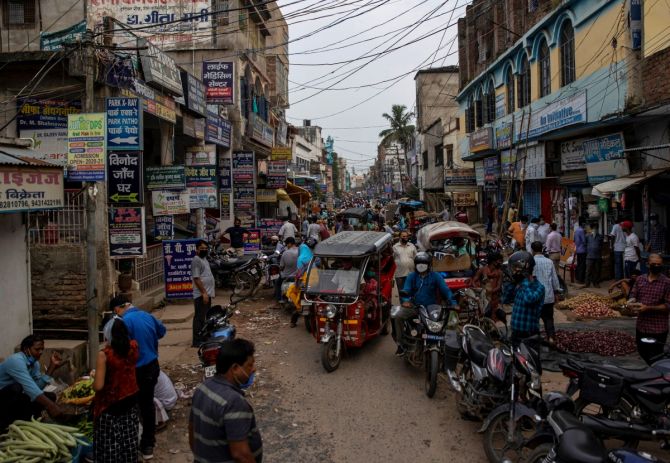
Your report says 1% wealth tax on the 98 richest Indian billionaire families would finance Ayushman Bharat for more than seven years.
And, we are not even talking about a regular tax, just a one-off tax.
Similarly, we also said that a 1% surcharge on the top 10% will raise an additional amount of Rs 8.7 lakh crores!
The Oxfam report very strongly says that this is the moment for the government to reintroduce wealth tax.
The question that we hear is, where is the revenue? Our answer is, you can raise the revenue through wealth tax and use it for healthcare, social security benefit, old-age pension, childcare, and education.
There is a whole range of activities we can invest in to protect the vulnerable and the poor.
We are trying to highlight again and again that you cannot continue with a system where all the profits get accumulated with the top whereas the majority of the population see a decline in their income. It is hugely problematic.
Do you feel the present government is targeting NGOs by stopping foreign funds. For example, the latest target was the Missionaries of Charity, one of the most admired charities in India and the world.
I would say, for any robust democracy, it is very important that we have a vibrant civil society; a civil society that nurtures charitable causes like the missionaries, to entities like the Narmada Bachao Aandolan which asks very fundamental questions about the development trajectory of the country.
Only when we have all these working together, we will have a healthy democracy.
So, the government must ensure we have a robust civil society.
Feature Presentation: Rajesh Alva/Rediff.com

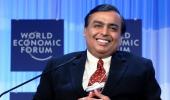
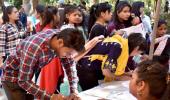
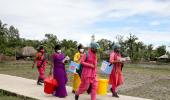





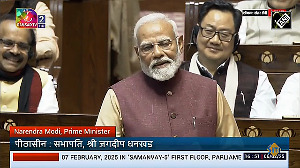
 © 2025
© 2025